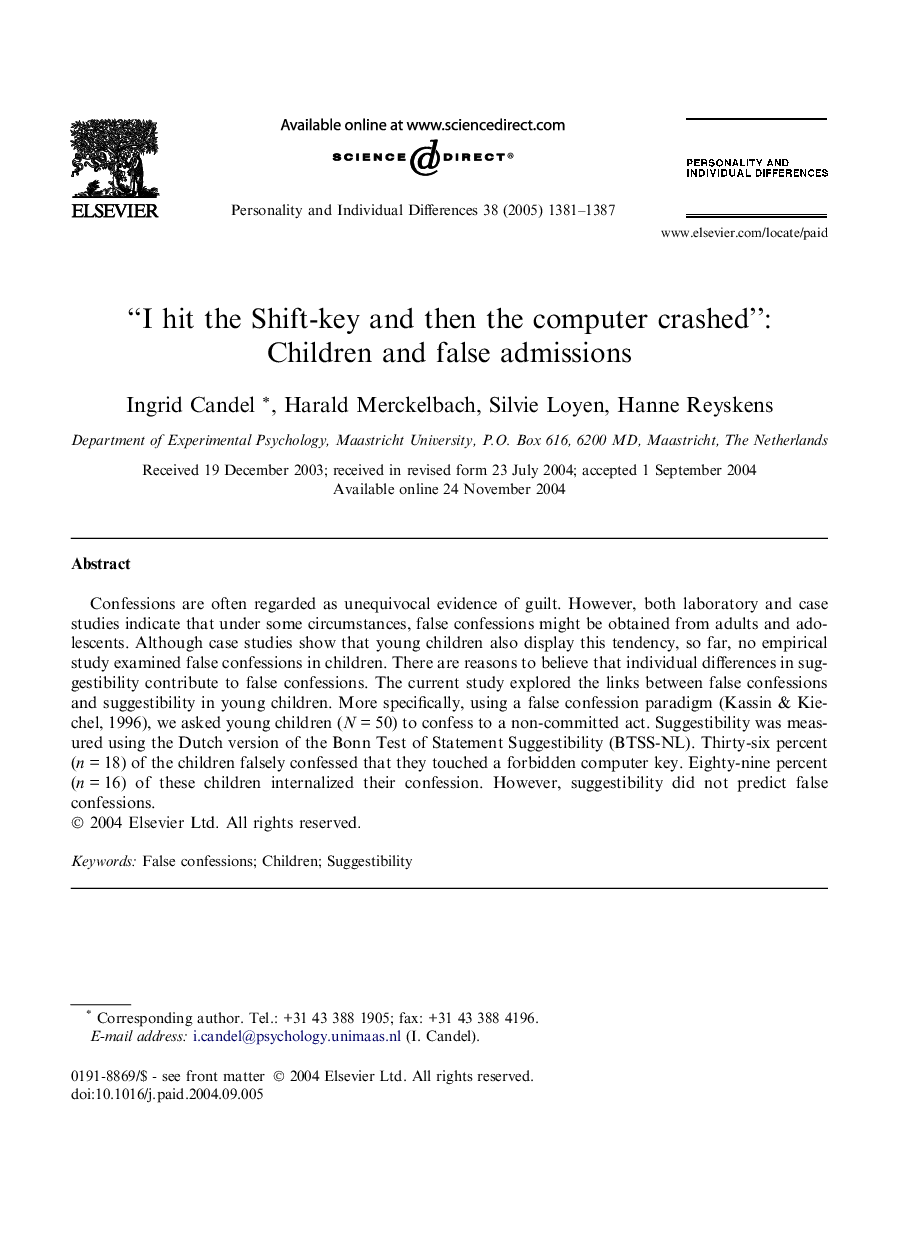| Article ID | Journal | Published Year | Pages | File Type |
|---|---|---|---|---|
| 10441024 | Personality and Individual Differences | 2005 | 7 Pages |
Abstract
Confessions are often regarded as unequivocal evidence of guilt. However, both laboratory and case studies indicate that under some circumstances, false confessions might be obtained from adults and adolescents. Although case studies show that young children also display this tendency, so far, no empirical study examined false confessions in children. There are reasons to believe that individual differences in suggestibility contribute to false confessions. The current study explored the links between false confessions and suggestibility in young children. More specifically, using a false confession paradigm (Kassin & Kiechel, 1996), we asked young children (N = 50) to confess to a non-committed act. Suggestibility was measured using the Dutch version of the Bonn Test of Statement Suggestibility (BTSS-NL). Thirty-six percent (n = 18) of the children falsely confessed that they touched a forbidden computer key. Eighty-nine percent (n = 16) of these children internalized their confession. However, suggestibility did not predict false confessions.
Related Topics
Life Sciences
Neuroscience
Behavioral Neuroscience
Authors
Ingrid Candel, Harald Merckelbach, Silvie Loyen, Hanne Reyskens,
